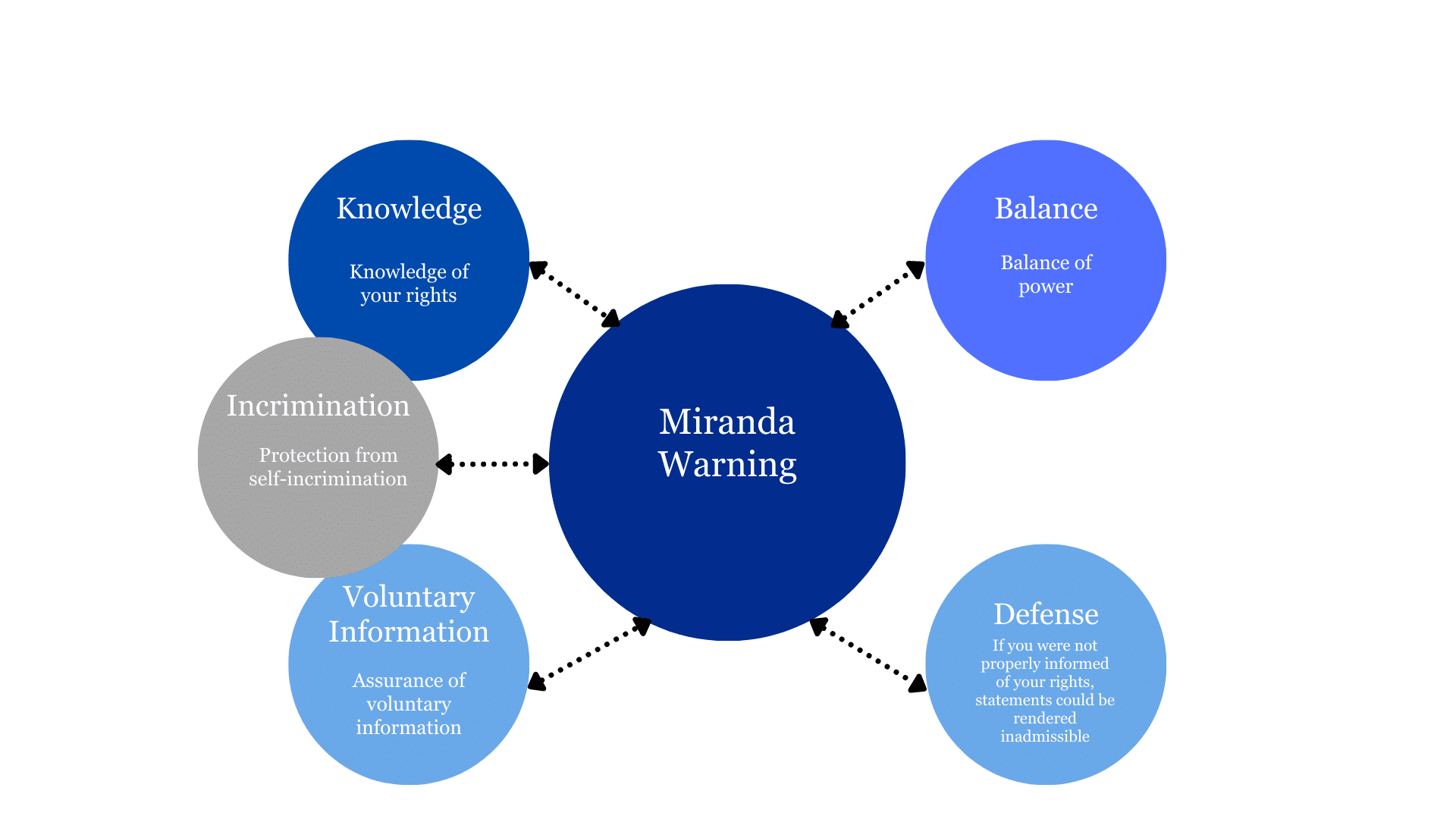Miranda Warning in Oklahoma – Not Read Your Rights
When the U.S. Supreme Court handed down its decision in Miranda v. Arizona in 1966, it set in motion a new set of laws creating tremendous protections for those accused of a crime. Before this monumental ruling, law enforcement regulations about interrogations and questioning were widely unregulated, and individuals accused of a crime had far fewer protections against self-incrimination.
With police enjoying far greater leeway in the tactics they used to question suspects, coercion, and duplicity were common and countless individuals were questioned without being informed of their Constitutional rights. The information they gave to law enforcement under these unconstitutional circumstances was frequently used against them in court.
Thankfully, the Miranda decision brought about a massive change in procedure, codifying the Miranda warning as a cornerstone of suspect rights. By ensuring that everyone is well informed of their right to remain silent and request an attorney, those suspected of a crime have a far greater opportunity to exercise their constitutional rights. And by holding law enforcement accountable for informing suspects of their rights, untold abuses of power have been averted.
What Does it Do for Me?
Designed to protect individuals in police custody by informing them of their rights, the Miranda warning offers a wealth of protections to citizens. These include:

Knowledge of Your Rights: The constitution stipulates that you have the right to legal representation and the right to not be compelled into self-incrimination. By being made aware of these rights, you are better equipped to speak with law enforcement with full knowledge of possible consequences.
Protection from Self-Incrimination: The Fifth Amendment to the U.S. Constitution protects you from making any testimony to law enforcement that could potentially incriminate you. The Miranda warning informs you of that right, allowing you to avoid saying anything which could be used against you.
Assurance of Voluntary Information: Conversely, the Miranda Warning also ensures that any statement made during interactions with law enforcement has been made voluntarily and with full knowledge of any consequences. This makes it less likely that statements will be made under coercion.
Balance of Power: When you are in police custody, it may seem like they hold all the cards. The Miranda warning balances that playing field, giving you a better understanding of your rights and your position.
Legal Recourse: If you were not properly informed of your rights during an interrogation following Miranda laws, statements that you make or evidence obtained by police can be rendered inadmissible.
Sidebar: Other Police Mistakes
While improperly reading Miranda rights can be a basis for having charges dismissed, or at the very least having evidence and statements suppressed, it is not the only want to contest an arrest. There are numerous examples of procedural mistakes that police could make during an arrest which could lead to a dismissal. Some examples include:
Violations of Fourth Amendment Rights: As a Constitutionally enshrined protection, the Fourth Amendment guarantees protection against unreasonable search and seizure. If the warrant used is found to be invalid or if requirements for a warrantless search were not met, evidence may be deemed inadmissible.
Violations of Sixth Amendment Rights: Among other things, the Sixth Amendment guarantees that you have the right to legal counsel. Even if you are properly informed of this right per Miranda laws, any attempt by law enforcement to deny you an attorney can render evidence and statements inadmissible.
Improper Chain of Custody Procedures: At every stop, meticulous documentation must track who had evidence and when. If there are any gaps in this chain of custody or discrepancies in the documentation, the validity of the evidence in question is instantly compromised, possibly prompting a dismissal.
Lack of Probable Cause and/or Reasonable Suspicion: To initiate any kind of detainment, whether a traffic stop, a search, or an arrest, police must demonstrate that they had justification. Failure to do so can be considered unlawful and could lead a judge to dismiss evidence and charges.
Failing to Share Exculpatory Evidence: Exculpatory Evidence refers to any evidence collected during an investigation that could help your case, and the prosecution is legally obligated to share this information with the defense. Failure to do so undermines the legitimacy of the trial.
Unreliable Testimony: While the prosecution may not rest entirely on witness testimony, any flaws in that testimony – either through misidentification or simple unreliability – can cast doubts on the entire case against you.
The Miranda Warning, Line by Line
As ubiquitous as the Miranda Warning has become, most of us can recite each line by heart. But taking a closer look at each line shows the real power behind these words and the way each protects your rights differently.
You have the right to remain silent. In a nutshell, this line encapsulates your Constitutional rights as outlined in the Fifth Amendment. You are under no obligation to say anything to the police or answer any questions, regardless of whether or not your statements could incriminate you. Instead, you can remain silent, protecting yourself from giving any evidence while not admitting to any kind of guilt.
Anything you say can and will be used against you in a court of law. Further emphasizing your rights under the Fifth Amendment, this line reiterates the potential consequences that could come from making any statements. Any statement, no matter how innocuous, could be misconstrued or taken out of context, giving the prosecution greater leverage against you.
You have the right to speak with an attorney and have them present during questioning. Here we see the Sixth Amendment in action, guaranteeing you the right to legal representation. With an attorney at your side, you’ll be better equipped to answer questions knowing that your rights are being preserved.
If you cannot afford an attorney, one will be appointed to represent you. Because Constitutional rights should be available regardless of financial status, the state is obligated to provide you with legal counsel. This attorney could be a public defender or a member of a legal aid organization. It’s worth noting that most public defenders carry heavier caseloads and have less experience than private attorneys, who are better equipped to devote time and resources to your defense.
I Wasn’t Read My Rights. Now What?
If the police fail to read you your Miranda Rights, and you subsequently make statements that could incriminate you, that failure could help you in court. As a bedrock of American law enforcement, Miranda laws inform you of your rights, and statements made without that information could be rendered inadmissible in court.
That said, all this failure can do is keep statements you make under interrogation from being used against you. It does not necessarily render the arrest and the charges against you null and void. It simply allows your attorney to declare statements that you made and evidence that you procured during the arrest inadmissible. In some cases, defendants may be read their Miranda rights but choose to waive them and speak with law enforcement without legal counsel. This is not recommended, as you are essentially surrendering your Constitutional rights.
At The Edge Law Firm, we know that being charged with a crime and being guilty of a crime are two very different things. By devising a strategy and being better prepared than the opposing side, we walk into court ready to achieve the best possible outcomes.
These rights only apply if you use them. You can’t tell your side of the story and claim that your rights were violated. You must remain quiet and request to talk to an attorney.
Please submit your contact information below to schedule a free, no-obligation legal consultation with The Edge Law Firm.
Please submit our secure contact form below:

